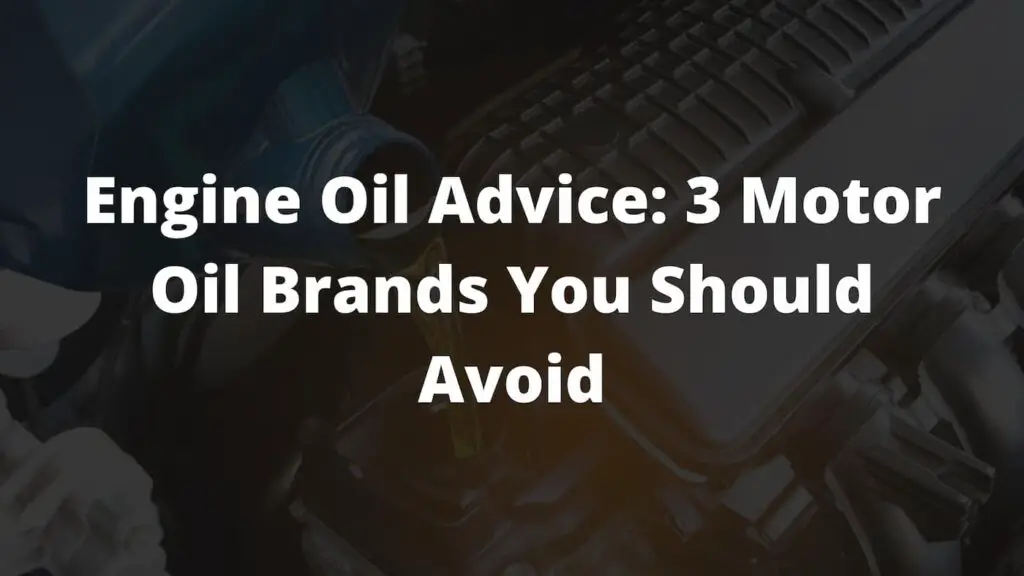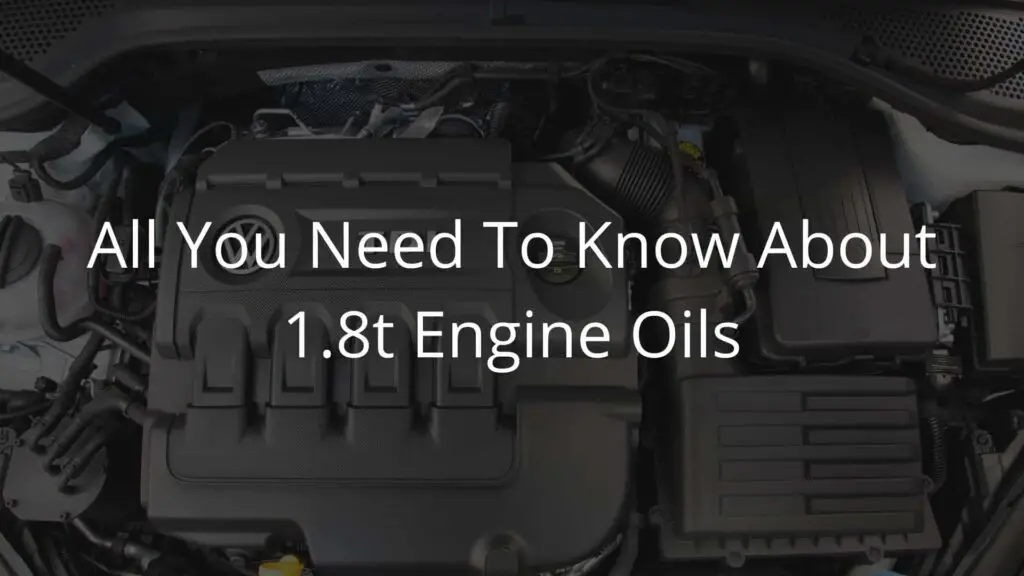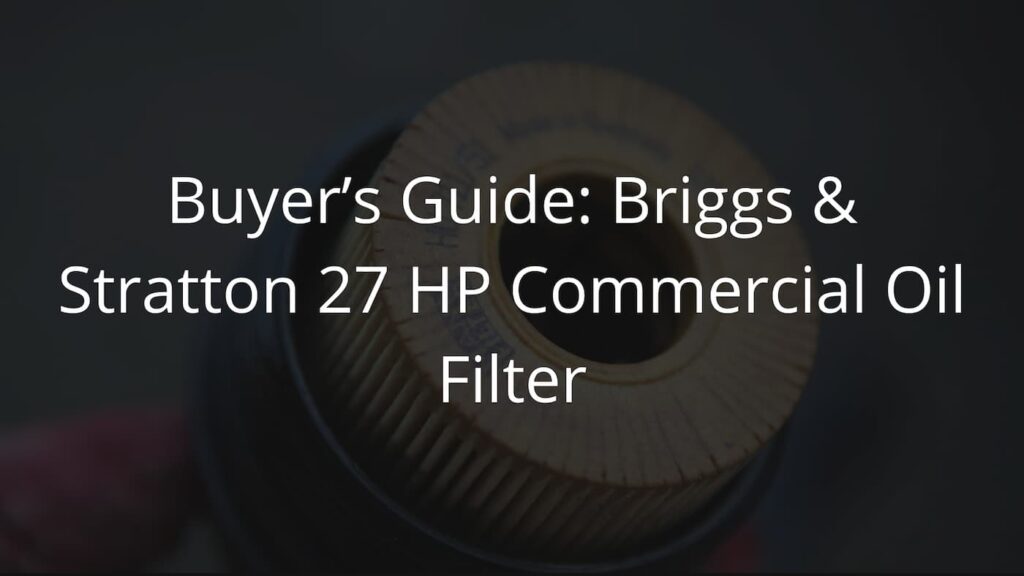Do you want your vehicle’s engine to deteriorate?
No?
Obviously, most of you don’t want anything to happen to your vehicle (to the remaining: let’s not cross paths again…).
Nonetheless, you can damage your vehicle unknowingly. For instance, you may buy a “5W-30 engine oil” but not know that the product doesn’t provide the required viscosity.
That often happens when you buy engine oil from the wrong brand, which makes false claims about the viscosity levels.
Read on to learn about motor oil brands you should avoid, ways to avoid picking the wrong brands, and the oil brands you can trust.
Engine Oil Quality 101
Each engine oil product you buy would have something like this in the description: Meets or exceeds the requirements of….
Following that, you might see standards like ILSAC GF-5, API SN, and ACEA A1/B1.
Or, you might see these standards in a prominent box like this:
It means that the engine oil product you’re holding has passed specific requirements set by ILSAC, API, or ACEA — hint: these are regulatory bodies that provide standards for engine oils.
For instance, ILSAC GF-6 requires that an engine oil’s viscosity — how difficult it is for a liquid to flow — should only increase by up to 100% every 20 hours of testing at 40 °C.
In other words, an engine oil product claiming it has met ILSAC GF-6 requirements shouldn’t have a viscosity increase higher than 100% during a kinematic viscosity test at 40 °C.
Takeaway
For an engine oil to be of quality, it should actually be what it claims to be.
But that’s precisely what the brands in the next section don’t do.
Petroleum Quality Institute of America (PQIA) have found their products on the shelves with either no labels or counterfeit ones.
Motor Oil Brands to Avoid
PQIA issues a consumer alert whenever an engine oil product fails to provide what it claims. Here are some engine oil brands PQIA has found to be making fake claims:
1. HALO Lubricants
PQIA recently tested HALO Lubricant’s 10W-30 and found that it’ll cause damage to your vehicle’s engine instead of helping it via lubrication. It lacks the typical additives required to protect your vehicle’s engine from wear and deposits.
Besides that, you might confuse 10W-30 with SAE 10W-30, which is deceptive. Its viscosity of 7.9 cSt at 100 °C is below the minimum viscosity requirement of 9.3 cSt by SAE J300 for SAE 10W-30 engine oils.
Not to mention, the presence of iron, silicon, tin, and copper suggests that this product may be produced from used oil.
Why avoid HALO Lubricants:
- Absence of required additives
- Low viscosity
- High level of Impurities
2. Liberty Gold Plus
Liberty Gold Plus falls in the same category. PQIA tested Liberty Gold Plus’s 5W-30 Motor oil and found that this engine oil lacks the critical components you require in engine oil.
For instance, it doesn’t fulfill the requirements for SAE 5W-30 — its viscosity is nearly 70% below what’s required.
Besides that, it contains a high amount of silicon in it. Instead of a typical 5 ppm/d, it returned a value of 99 ppm/d, which is astonishingly high for an engine oil since silicon is an abrasive material that will only damage the engine.
Last but not least, Liberty Gold Plus’s 5W-30 has high volatility — up to five times higher than usual. In other words, you might make yourself a fire magnet by putting this engine oil in your vehicle.
Why avoid Liberty Gold Plus:
- High volatility
- Low viscosity
- Abrasive impurities
3. Xpress Lube Pro
PQIA tested different motor oils by Xpress Lube Pro nine times between 2014 and 2019. But none of them passed the quality tests.
Xpress Lube Pro 5W-30 had a viscosity of 6.5 cSt (required viscosity for SAE 5W-30: 9.3 cSt) at 100 °C. And Xpress Lube Pro 10W-40 had a viscosity of 4 cSt (required viscosity for SAE 10W-40: 12.5 cSt) at 100 °C. In other words, none of Xpress Lube Pro products meet the SAE J300 requirements.
Besides that, engine oil products of Xpress Lube Pro lack the required additives to protect your vehicle’s engine from wear and deposits.
In fact, all of its products contain high amounts of silicon, which hurts your engine instead of protecting it.
Why avoid Xpress Lube Pro:
- Abrasive impurities
- Low viscosity
- Absence of additives
Engine Oils: Best Brands
So what’s the right choice?
PQIA doesn’t only give us a list of bad brands, it also returns results of brands with no issues. And three brands have yet to get a consumer alert: Castrol, Mobil, and Valvoline.
You can pick your required engine oil from one of these brands and change your engine oil without any worries.
Let’s explore these brands:
1. Castrol
Castrol develops superior lubricants that protect against friction and improve your fuel economy.
For instance, PQIA shares that Castrol GTX High Mileage SAE 5W-30 Motor Oil fulfills all the SAE J300 specifications stated on its cover.
Castrol’s engine oils are perfect for customers looking for an affordable option that still provides superior performance.
Why pick Castrol:
- Superior quality performance
- Environmentally friendly
- High mileage guaranteed
- Longevity
2. Valvoline
Valvoline offers a wide range of options when it comes to specialty oils. These include high mileage, high performance, and synthetic blend engine oils.
Valvoline is a great brand since it provides what it advertises. You can trust its engine oils’ composition charts and viscosity graphs. If Valvoline says an engine oil will work for your engine at -100 °F, it will.
Why pick Valvoline:
- Superior mileage
- Affordable
- Enhances engine’s health
3. Mobil
Mobil has been a trusted name in lubricants for over 100 years. It produces some of the smoothest running oils and additives available.
Mobil’s engine oils have the required additives that reduce wear on the engine’s moving parts and help you keep your car for a longer period. Put simply, you can rest assured that Mobil will take care of your engine.
For instance, PQIA tested Mobil 1 Extended Performance High Mileage SAE 5W-30 and found that it fulfills all the SAE J300 requirements and meets the standards it claims on the product label.
Why pick Mobil:
- Perfect SAE grading
- Economical
- Advanced additives
Final Thoughts — Engine Oil Advice: 3 Motor Oil Brands to Avoid
The motor oil you select decides the performance and life of your engine. Engine oil from a bad brand may cost less money but can damage your engine.
Visit PQIA’s website today and ensure the brand you use isn’t found among consumer alerts.
Explore our blog for more information on engine oils.



